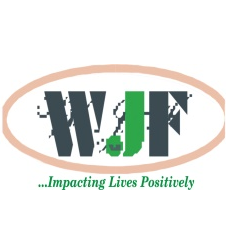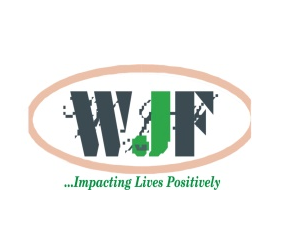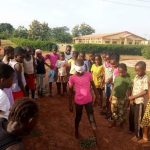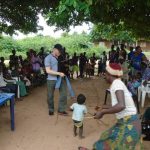The Sustainable Mechanism for Improving Livelihoods and Household Empowerment (SMILE)
The Sustainable Mechanism for Improving Livelihoods and Household Empowerment (SMILE) is a five-year project funded by the President Emergency Plan for AIDS Relief (PEPFAR) through the United States Agency for International Development (USAID). With a USAID grant through Catholic Relief Services (CRS) on the SMILE project, WJF has supported the provision of need-based and age-appropriate services to 4,114 vulnerable children and 1,142 caregivers in Afuze, Ihievbe, and Ohanmi communities across Owan East LGA of Edo State over the past four years.
WJF provided quality Health, Psychosocial, Protection, Education, and Household Economic Support services to the children and their households in line with the PEPFAR guideline on the paradigm shift in OVC programming. Through the SMILE project, WJF was able to build the capacity of key stakeholders such as community volunteers to LGA staffers, down to caregivers and older VCs in three communities of Owan-East LGA.
The SMILE Project Achievements
Access to Education
The Block Grant initiative facilitated institutional relationships with the benefiting schools to offer quality services to OVC. Essentially, the schools agreed to waive levies and other charges for enrolled OVC in exchange for an investment made by WJF through SMILE to improve the teaching and learning outcomes of the school. Mutual agreements were reached between WJF and St. James Secondary School Afuze, and Ivbigun Primary School Ohanmi, respectively. This strategy eliminates barriers to access to education, which is largely associated with the inability of caregivers to pay tuition and other statutory levies. In 2018, 563 VCs (293 males and 270 females) in Owan East were supported by SMILE to access education through the Block Grant intervention.
Household Economic Strengthening
SMILE enhanced household food security during the 2015, 2016, and 2017 farming seasons. A total of 638 caregivers were provided with pro-vitamin A cassava planting stems, 538 with orange-fleshed sweet potato vines, and 325 with quality protein maize (QPM). In May 2018, 348 caregivers were provided with Pro Vitamin A Maize and QPM seeds, and in early August 2018, 183 received improved oil palm, coconut, and mango seedlings. Another 117 caregivers have benefited from the project’s cash transfer program to support consumption and improve their resilience to shocks.
A total of 70 older vulnerable children and caregivers were enrolled in 2016 and 2017 into various vocational skills training, including tailoring, hairdressing, computer appreciation, phone repairs, tiling & masonry, knitting, electrical works, plumbing, pastries, and soap making. Out of the total number of participants, 25 trainees met the prerequisites for graduation and received start-up support.
Health
4,195 children and 1,142 caregivers have been supported with HIV Counseling and Testing Services to know their status. Ten positive caregivers and one OVC were under care and support to access escort services for HIV treatment.
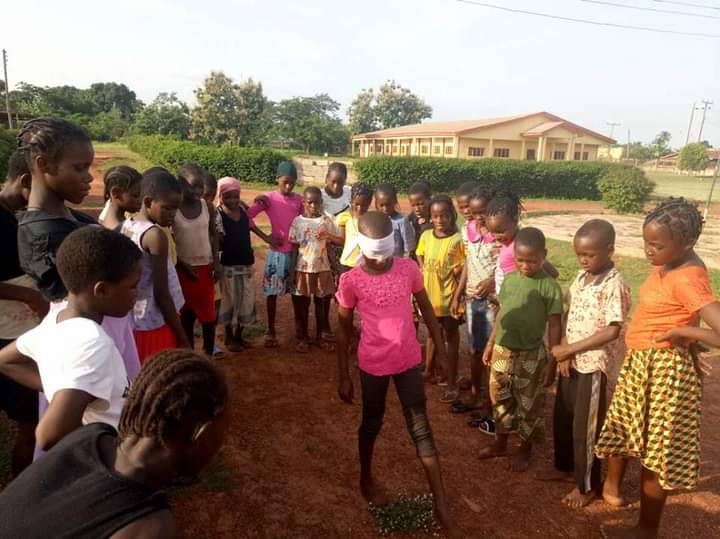
Nutrition
Served a total number of 1,440 (1,428 females and 12 males) persons in the Community Infant and Young Child Feeding support groups (C-IYCF) across the three benefiting communities of Owan East LGA. WJF, through the SMILE program, conducted nutrition assessments for 2,211 enrolled VCs and regularly monitored the growth of VCs aged 0-5 years.
Child Protection
WJF facilitated the vital registration of 1,596 children in the three benefiting communities of the LGA.
Coordination Structures (Case Management and Services)
The SMILE project has established structures at the local government and community levels to ensure informed, evidence-based, and coordinated programming for child protection in the area. This includes, but is not limited to:
- Functional Child Rights Implementation Committee at the Local Government Level
- Functional Referral Mechanism at LGA Level
- Functional Quality Improvement Team (QIT) at LGA level
- Community Quality Improvement Team (CQIT) in the LGA and across two communities
